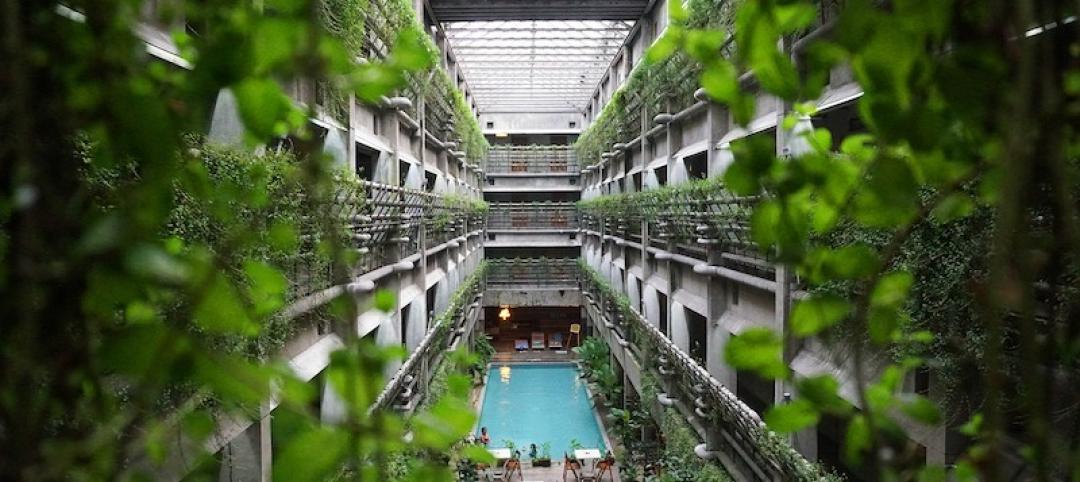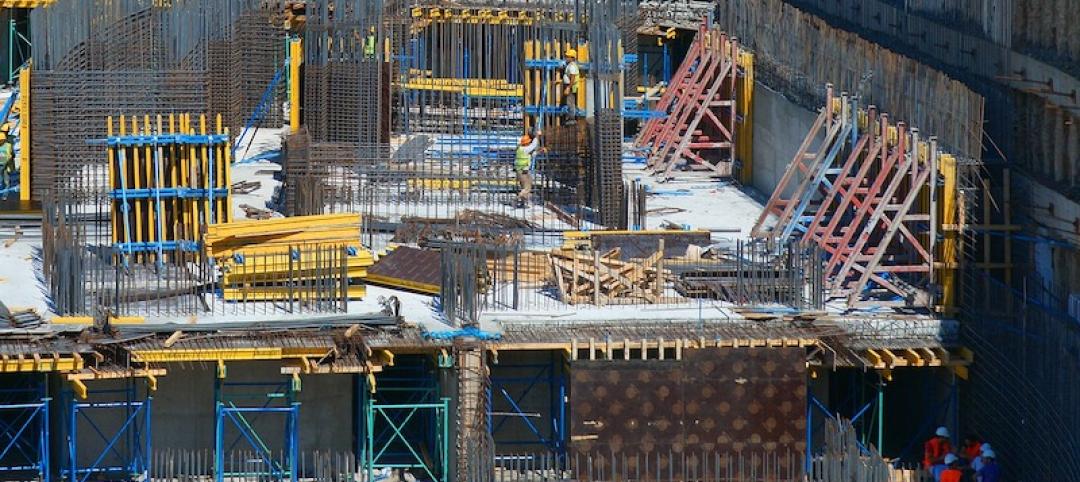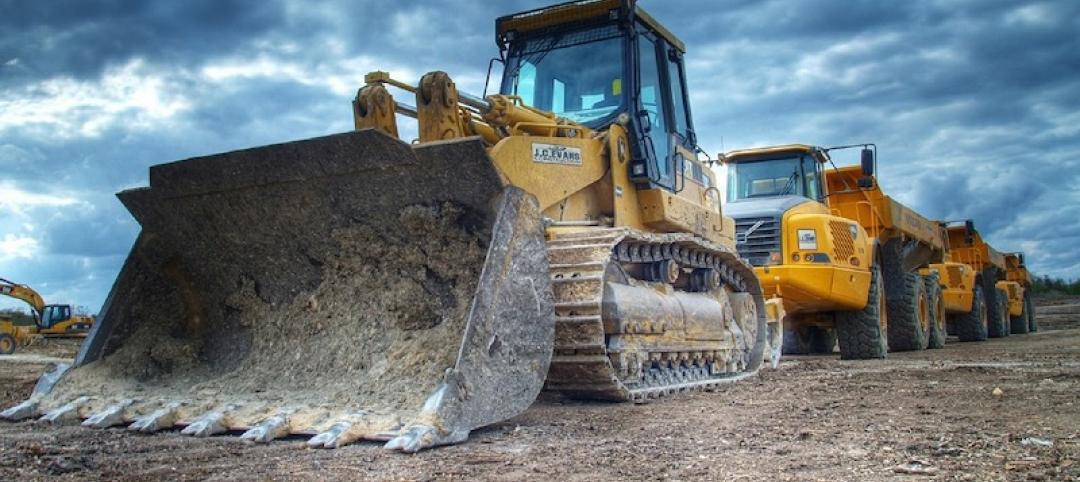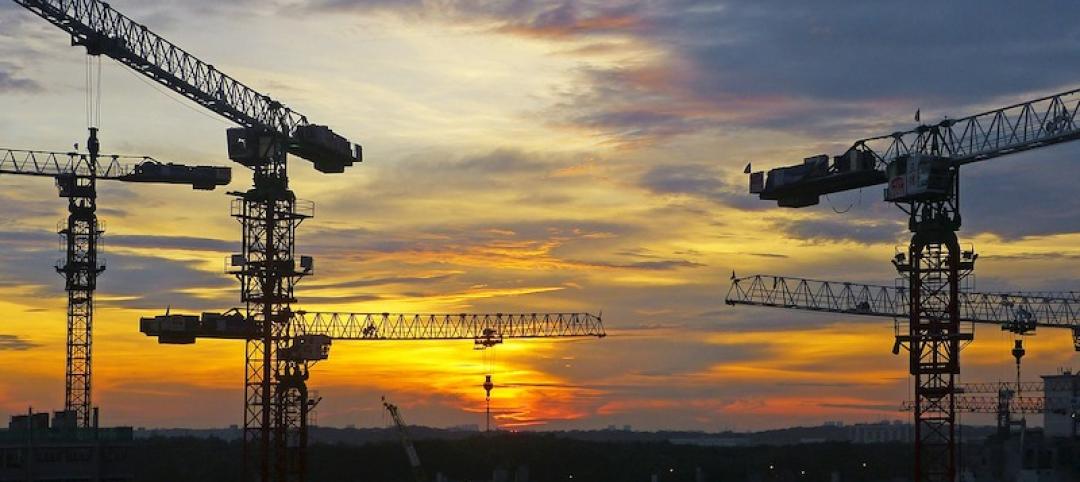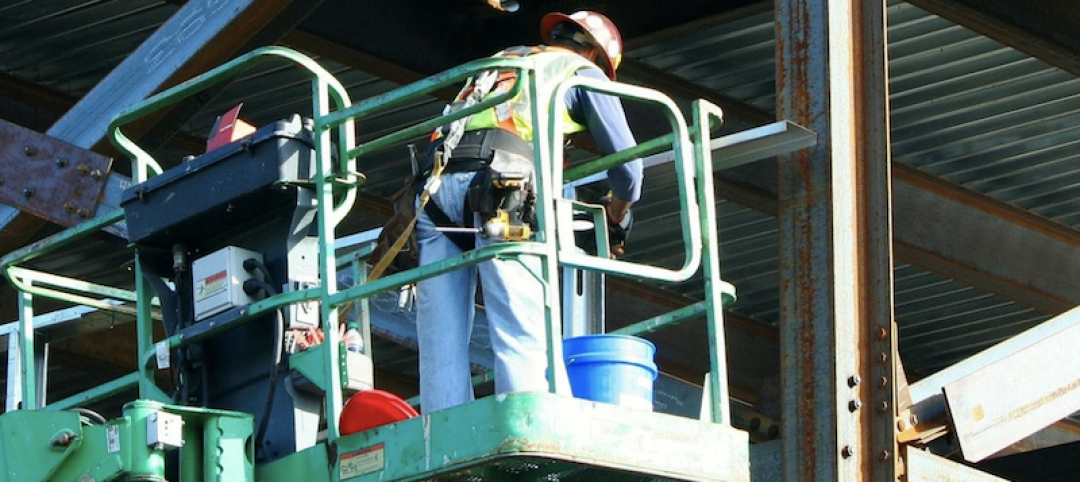Nonresidential construction spending fell to a two-year low in March as contractors struggled with slumping demand for most project types and growing shortages of materials, transport, and workers, according to an analysis of new federal construction spending data by the Associated General Contractors of America. Officials with the association said project cancellations and widespread supply chain problems are hindering the industry’s recovery.
“Every major category of private nonresidential projects has declined over the past year, while public construction spending is also deteriorating rapidly,” said Ken Simonson, the association’s chief economist. “Unfortunately, the widespread and growing backlogs for key materials and shortages of trucking and rail services to deliver goods mean that even projects that are underway are likely to take longer to complete.”
Construction spending in March totaled $1.51 trillion at a seasonally adjusted annual rate, an increase of 0.8% from the pace in February and 5.3% higher than in March 2020. However, the year-over-year gain was limited to residential construction, Simonson noted. That segment jumped 1.7% for the month and 23% year-over-year. Meanwhile, combined private and public nonresidential spending declined 1.1% from February—the fourth consecutive monthly decrease—and 7.4% over 12 months.
Private nonresidential construction spending fell 0.9% from February to March and 9.1% since March 2020, with year-over-year decreases in all 11 subsegments. The largest private nonresidential category, power construction, retreated 8.3% year-over-year and 0.4% from February to March. Among the other large private nonresidential project types, commercial construction—comprising retail, warehouse and farm structures—slumped 8.8% year-over-year and 0.5% for the month. Manufacturing construction tumbled 7.8% from a year earlier and 1.3% in March. Office construction decreased 4.2% year-over-year and 0.4% in March.
Public construction spending slumped 4.6% year-over-year and 1.5% for the month. Among the largest segments, highway and street construction declined 10.9% from a year earlier and 2.2% for the month, while educational construction decreased 4.0% year-over-year and 2.0% in March. Spending on transportation facilities declined 0.9% over 12 months but rose 1.8% in March.
Association officials urged Congress and the Biden administration to work together to increase investments in infrastructure. And they continued to call on the President to take steps to address rapidly rising materials prices, including by ending tariffs on key construction materials like steel and lumber. They cautioned that without the new investments and supply chain relief, the industry would have a hard time recovering.
“Federal officials are pushing for an economic recovery while at the same time hanging on to dated policies, like tariffs, that are holding growth back,” said Stephen E. Sandherr, the association’s chief executive officer. “Boosting infrastructure investments and tackling supply chain problems will go a long way in unleashing demand for new construction workers.”
Related Stories
Market Data | Jun 16, 2021
Construction input prices rise 4.6% in May; softwood lumber prices up 154% from a year ago
Construction input prices are 24.3% higher than a year ago, while nonresidential construction input prices increased 23.9% over that span.
Market Data | Jun 16, 2021
Producer prices for construction materials and services jump 24% over 12 months
The 24.3% increase in prices for materials used in construction from May 2020 to last month was nearly twice as great as in any previous year
Market Data | Jun 15, 2021
ABC’s Construction Backlog inches higher in May
Materials and labor shortages suppress contractor confidence.
Market Data | Jun 11, 2021
The countries with the most green buildings
As the country that set up the LEED initiative, the US is a natural leader in constructing green buildings.
Market Data | Jun 7, 2021
Construction employment slips by 20,000 in May
Seasonally adjusted construction employment in May totaled 7,423,000.
Market Data | Jun 2, 2021
Construction employment in April lags pre-covid February 2020 level in 107 metro areas
Houston-The Woodlands-Sugar Land and Odessa, Texas have worst 14-month construction job losses.
Market Data | Jun 1, 2021
Nonresidential construction spending decreases 0.5% in April
Spending was down on a monthly basis in nine of 16 nonresidential subcategories.
Market Data | Jun 1, 2021
Nonresidential construction outlays drop in April to two-year low
Public and private work declines amid supply-chain woes, soaring costs.
Market Data | May 24, 2021
Construction employment in April remains below pre-pandemic peak in 36 states and D.C.
Texas and Louisiana have worst job losses since February 2020, while Utah and Idaho are the top gainers.
Market Data | May 19, 2021
Design activity strongly increases
Demand signals construction is recovering.






